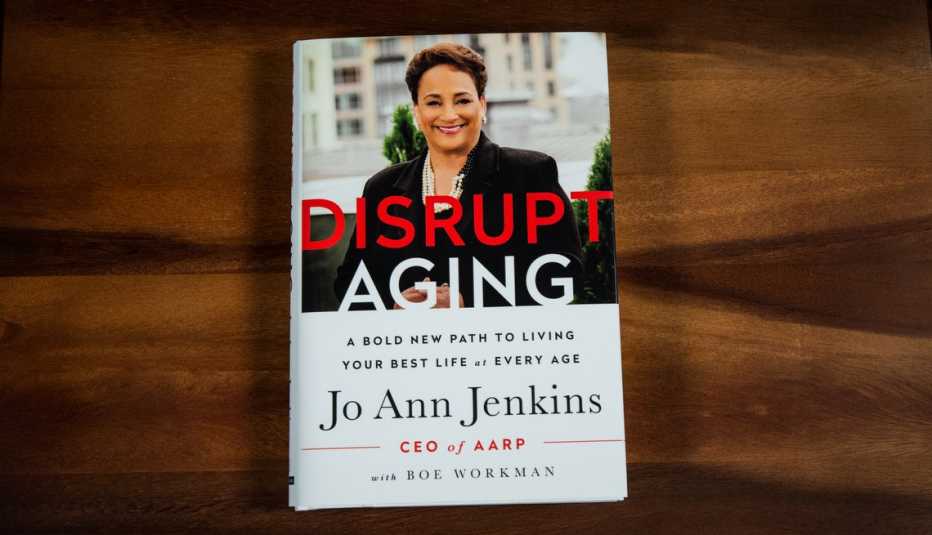AARP Hearing Center


Book Description
BUY THIS BOOK!
- Amazon
- Barnes&Noble
- Book-Pal - Hardback (discounts on bulk orders)
- Book-Pal - Paperback (discounts on bulk orders)
Pricing varies by retailer
Paperback , Hardback, E-book | "At 50, I began to know who I was. It was like waking up to myself." —Maya Angelou
We've all seen the ads on TV and in magazines: "50 is the new 30!" "60 is the new 40!" A nice sentiment, to be sure, but Jo Ann Jenkins, CEO of AARP and author of Disrupt Aging: A Bold New Path to Living Your Best Life at Every Age, disagrees. Fifty is 50, and she, for one, likes the look of it.
People 50+ today face distinct challenges and have different goals than people in their 30s and 40s. They're at a different place in their lives and are motivated by different things. They see the world through a lens that is shaped by the ups and downs of life, by the wisdom gained from those experiences and by the comfort that comes from having a better understanding of who they are as individuals and what they want from life. We are living decades longer than our grandparents — how will we spend those years?
Disrupt Aging sets out to change the current conversation about what it means to get older. In the book, Jenkins chronicles her own journey, as well as those of others who are making their mark as disrupters, to show readers how we can all be active, financially unburdened and happy as we get older. It's an engaging narrative that touches on all the important issues facing people 50+ today, from caregiving and mindful living to building age-friendly communities and attaining financial freedom.
Jenkins also tackles the new myths about aging, including:
• We are all living longer:
Today's economic and cultural forces benefit some but not all, and we need to change that.
• Baby boomers are a drag on the economy:
Boomers are consumers, spending $4.6 trillion annually on goods and services. We just have to learn how to best reach them.
• Aging is a problem to be solved:
Aging is not a problem any more than living is — it's a part of the human experience, and our job is to get the absolute most out of it.
This is a book for all the makers and doers who have a desire to continue exploring their possibilities, to celebrate discovery over decline and to seek out opportunities to live the best life. Our ability to live longer, healthier lives is one of mankind's greatest accomplishments. It's time we treat it as such, and this book will show readers how.



































































More Books